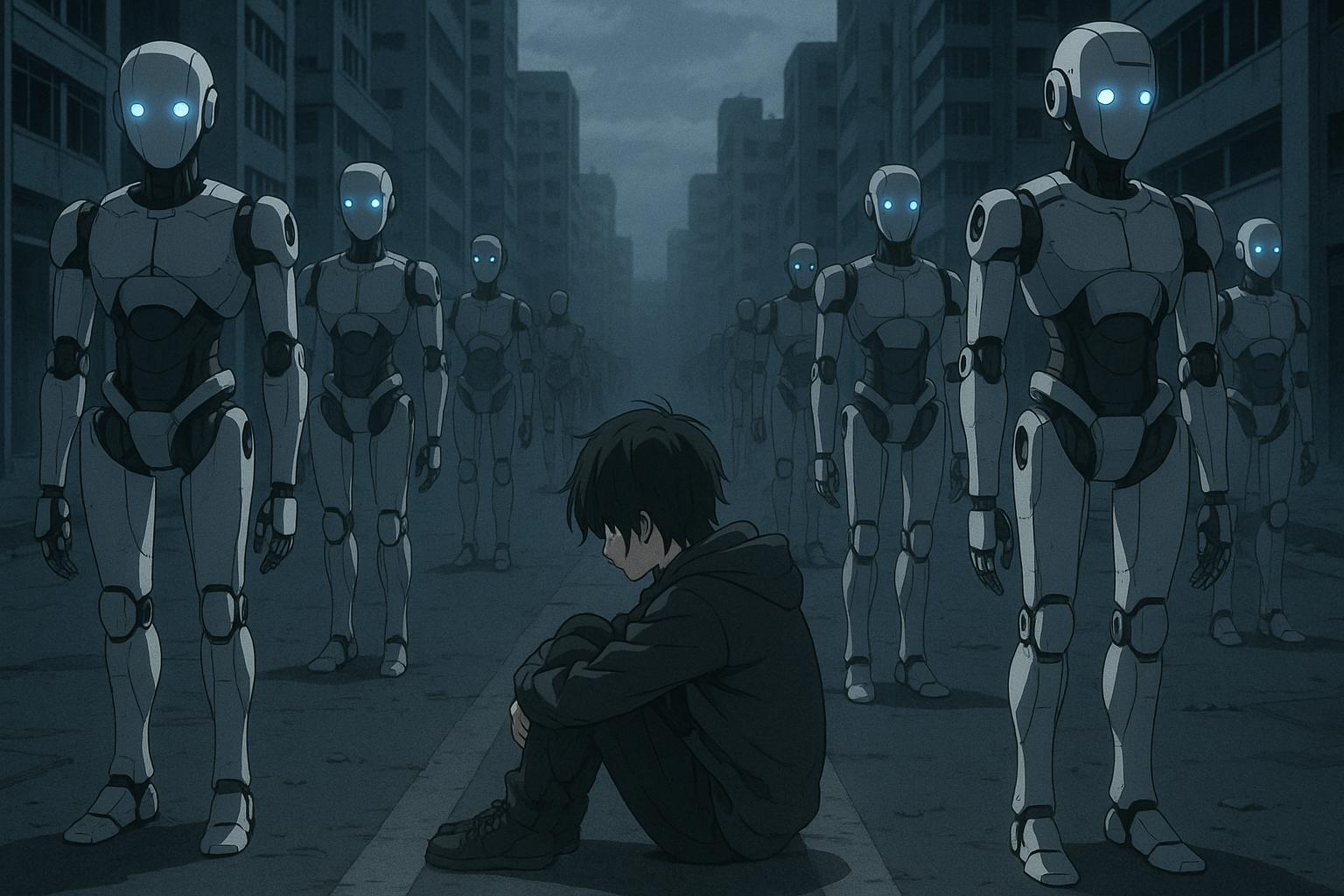An alarming forecast from an Oklahoma tech expert suggests that humanity could face a dramatic collapse, with the global population dwindling to just 100 million people by the year 2300. Subhash Kak, a professor of computer science at Oklahoma State University, highlights the potential for such a drastic reduction, primarily attributing it to the rise of artificial intelligence and automation. “It’s going to be devastating for society and world society,” Kak warned, noting that many people may not comprehend the gravity of the situation.
Kak’s concerns centre around the notion that automation could replace human jobs across various sectors, from law to academia, inducing a societal reluctance to have children. “People are hesitant to bring children into a world where they might not find employment,” he remarked. As employment opportunities decline due to technological advancement, Kak fears that birth rates will plummet, leading to a population crisis. His predictions draw parallels with dystopian themes, but he emphasizes that this scenario is not a result of cataclysmic events, such as nuclear warfare, but rather a slow societal transformation driven by technology.
Demographic trends already indicate troubling signs. Many developed countries, including those in Europe and Asia, are grappling with declining birth rates. Kak points to South Korea as having one of the steepest declines, reflecting a broader trend where societies are ageing, and younger generations appear reluctant to start families. Data corroborates his concerns: experts across various fields have observed that a shrinking workforce could lead to slower GDP growth, increased economic pressure, and difficulties in sustaining social entitlement programs.
The relationship between artificial intelligence and population dynamics has sparked significant dialogue about the future of work and social structure. As AI technologies advance, they could help mitigate some of the economic impacts of a declining population by enhancing productivity, potentially maintaining economic stability. However, this progress may not fully compensate for the social challenges that come with aging populations and reduced birth rates. Improved automation can fill labour shortages, yet it may also lead to increased loneliness and social fragmentation, as traditional community structures evolve or dissolve.
Additionally, some experts, such as Elon Musk, have echoed similar concerns about declining global birth rates, advocating for the exploration of options beyond Earth as a safety measure for humanity. “That’s why Musk is saying maybe humans should go to space, maybe build colonies elsewhere,” Kak suggested. This call to action is not purely speculative; it highlights a profound anxiety about what a dwindling global population could mean for the future of societal organisation and human continuity.
While the immediate effects of these demographic shifts are still unfolding, the implications are far-reaching. Scholars and policymakers are grappling with the necessity of innovative solutions, such as policies to promote family growth and support for increased workforce participation from various demographic groups. The challenge remains to balance technological advancement with sustainable population growth, addressing the risks of societal decline while nurturing human potential.
It is uncertain whether humanity will ultimately face extinction or merely a significant demographic shift, but Kak insists that the signs are clear. “What is absolutely certain is that there is a population collapse occurring right before our eyes,” he concluded, underscoring the urgency for societal reflection and action.
📌 Reference Map:
- Paragraph 1 – [1], [5]
- Paragraph 2 – [1], [2], [4]
- Paragraph 3 – [3], [6]
- Paragraph 4 – [3], [7]
- Paragraph 5 – [1], [6]
Source: Noah Wire Services
